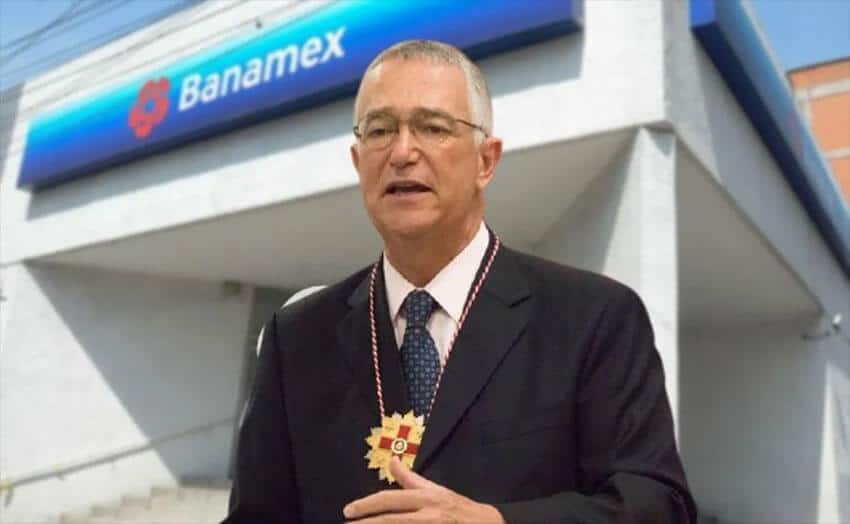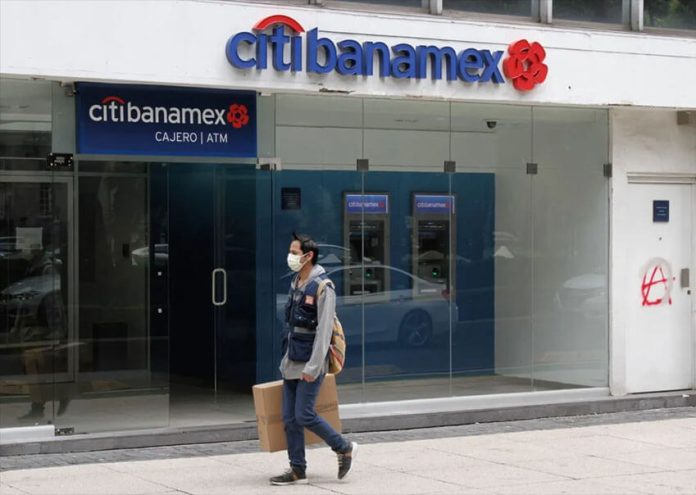The decision by investment banking company Citigroup to sell its Mexican consumer banking business could tilt the sector dominated by global financial giants to more local control as it becomes a test case for the government’s nationalist leanings.
The news of the Banamex unit’s sale or spin off comes at a time of political and regulatory upheaval in Mexico as President López Obrador implements an idiosyncratic agenda of fiscal austerity, social spending and economic nationalism.
Four of the country’s five largest banks are foreign owned. The president on Thursday said he wanted Banamex, which was founded in the 19th century and bought by Citi in 2001, to be “Mexicanized.” He said profits made by foreign companies are often not reinvested in the local economy.
“We’re not against foreigners but we would like it to be Mexicanized,” he said, listing potential Mexican investors including bank owners Carlos Slim, Ricardo Salinas Pliego and Carlos Hank González.
Citi bought Banamex in 2001 but it has been losing market share in recent years and is the third-largest by assets. If sold as a package, the deal could reach up to US $8.5 billion, analysts at JPMorgan estimated in a note. Pablo Riveroll, head of Latin American Equities at Schroders, estimated a valuation between $5 billion and $8 billion.
“It is a big deal because these big franchises don’t come up . . . often,” Riveroll said, adding that incumbents would benefit most from a purchase. “In any domestic banking sector, there are very meaningful synergies for existing players.”
Since Citi’s announcement, the finance ministry has emphasized that it will be rigorous with competition issues, a signal some interpret as complicating a purchase by larger incumbents. The finance ministry said authorities would ensure laws and regulations were applied and avoid concentration in the banking market.
Most analysts believe market leader BBVA, which has a market share of 24%, would face a big hurdle with competition regulators in buying the assets as a package. Spain’s Santander and Hank González’s Grupo Financiero Banorte would also face antitrust scrutiny.
Salinas Pliego’s Banco Azteca — ninth largest by deposits — wasted no time in entering the fray on Tuesday saying he would look at the assets.
Though his existing outfit, which is big in personal credit lending, has a different profile to Banamex, the opportunity to expand his broadcasting and retail empire could be tempting.
Several bankers said on condition of anonymity they believed he was a frontrunner given the president’s comments in support of a Mexican buyer and against market concentration.

Azteca, Banorte and BBVA Mexico all declined to comment.
Slim, the telecoms magnate who was once the world’s richest man, could also look at Citi’s assets. His bank Grupo Financiero Inbursa would also likely face fewer competition hurdles than bigger rivals and possibly benefit from cross-selling between his phone company América Móvil and the bank.
Some analysts commented that this deal might not fit his usual pattern of buying assets at distressed valuations. Inbursa declined to comment.
Banorte — the fourth largest by deposits —could have more synergies than other smaller groups, analysts said.
Citi said in its announcement that it would consider a sale or a public market alternative which could mean an initial public offering of the unit. Another option put forward by the head of the finance ministry’s Financial Intelligence Unit was a public-private partnership. Separately, Interior Minister Adán Augusto López said the government was not interested in buying the asset.
Rodrigo Morales Elcoro, professor at the Facultad Libre de Derecho in Monterrey, said competition regulator Cofece would closely analyze individual markets — for example credit cards or mortgages — if an incumbent tried to buy it.
“The scrutiny of Cofece would have to be very detailed with any banking operator that’s already participating in Mexican banking,” Morales Elcoro, a former Cofece board member, said.
In addition to Cofece, the Bank of México and banking regulator CNBV, part of the finance ministry, also have to approve any purchase.
Citi chief executive Jane Fraser on Friday said the company would not comment on speculation about potential buyers or the structure of a deal. She added that the separation process would begin immediately and expected the sales process to start in the spring.
The decision has set off a frenzy in Mexico’s mergers and acquisitions community. Bankers are racing around calling prospective buyers to secure work on what could be the country’s biggest deal in years.
“It’s like being a florist on Mother’s Day,” one investment banker said. “It’s what we’ve dreamed of.”
© 2022 The Financial Times Ltd. All rights reserved. Please do not copy and paste FT articles and redistribute by email or post to the web.
